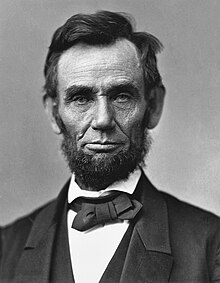Only $3.00 - You can pay using the Cash App by sending money to $HeinzSchmitz and send me an email at theoldcdbookshop@gmail.com with your email for the download. You can also pay using Facebook Pay in Messenger
Books Scanned from the Originals into PDF format
Books are in the public domain. I will take checks or money orders as well.
Contents:
Assassination of Lincoln - a History of the Great Conspiracy by T.M. Harris 1892
John Wilkes Booth; Escape and Wanderings until final ending of the trail by suicide at Enid, Oklahoma, January 12, 1903 by WP Campbell 1922
Trial of the Conspirators for the Assassination of President Lincoln by John A Bingham 1865
McKinley, Garfield, Lincoln - their lives-their deeds-their deaths, with a record of notable assassinations and a history of anarchy by William Dixon Bancroft 1901
Trial of the assassins and conspirators for the murder of Abraham Lincoln 1865
The Judicial Murder of Mary E. Surratt by David Miller Dewitt 1895
American Bastile - a History of the arbitrary arrests and imprisonment of American citizens on account of their political opinions during the late Civil War together with a full report of the illegal trial and execution of Mrs. Mary E. Surratt by a military commission, and a review of the testimony showing her entire innocence by John A Marshall 1884
The Assassination of Abraham Lincoln and its Expiation by David Miller Dewitt 1909
Famous Assassinations of history from Philip of Macedon, 336 B. C., to Alexander of Servia, A. D. 1903 by Francis Johnson 1903
Some Incidents in the Trial of President Lincoln's Assassins - The Controversy between President Johnson and Judge Holt by Henry L Burnett 1891
Rome's Responsibility for the Assassination of Abraham Lincoln by TM Harris 1897
Romanism and the republic by Isaac J Lansing 1889
(They claim the right to murder all rulers whom they consider apostates; and has it ever been brought to your attention (I speak of it as a curiosity only), that every person who had anything to do with the assassination of Abraham Lincoln was a Roman Catholic? — that John Wilkes Booth was a Roman Catholic; Payne and Atseroth, also Dr. Nudd, who dressed his leg; Garrett, in whose premises he was killed; also, that Harold was a Roman Catholic; Mrs. Suratt and her son were Roman Catholics; their house was the head-quarters
for Roman Catholics and for the Jesuit priests.)
The Escape and Suicide of John Wilkes Booth - The first true account of Lincoln's assassination containing a complete confession by Booth many years after the crime by Finis L Bates 1907
The Assassination and History of the Conspiracy - a complete digest of the whole affair by James R Hawley 1865
The Flight of J. Wilkes Booth by Paul DeVere 1880
The death of Lincoln - the Story of Booth's Plot, his deed and the penalty by Clara E Laughlin 1909
The Assassination of Lincoln by EW Coggeshall 1920
The Terrible tragedy at Washington - Assassination of President Lincoln. Last hours and death-bed scenes of the President 1865
The Story of a Crime by Richard Collum 1889
Death of Abraham Lincoln by ES Jordan 1865
The death of President Lincoln by WT Wilson 1910
Glimpses of History by George M Towle 1866
Oration on the death of Abraham Lincoln by William Binney 1865
Eulogy on the death of Abraham Lincoln by George S Boutwell 1865
Trial of John H. Surratt in the Criminal Court for the District of Columbia, Volume 1 1867
Trial of John H. Surratt in the Criminal Court for the District of Columbia, Volume 2 1867
Complete life of William McKinley and story of his assassination by Marshall Everett 1901 (has a chapter on notable assassinations)
Lessons of the hour. A discourse on the assassination of President Garfield by Edward S Atwood 1881
The Life and Public Services of James A. Garfield including full and accurate details of his eventful administration, assassination, last hours, death, etc by Emma E Brown 1881
Our Martyr Presidents - Lincoln, Garfield, McKinley by John Coulter 1901
The Life and Death of James A. Garfield by John Start Ogilvie 1881
The Great Guiteau Trial: with life of the cowardly assassin 1882
An Historic Memento of the Nation's Loss - the true story of the assassination of President McKinley by Richard H Barry 1901
The trial, execution, autopsy and mental status of Leon F. Czolgosz, alias Fred Nieman, the assassin of President McKinley by Carlos F MacDonald 1901
Our Martyred President by Phebe Hanaford 1865
Our Martyred President as a Man - memorial life of William McKinley ... together with a full history of anarchy and its infamous deeds by George W Townsend 1901
Assassination of Lincoln by Charles P Chiniquy 1886 (Anti-Catholic)
Reminiscences and souvenirs of the assassination of Abraham Lincoln by JE Buckingham 1894
















